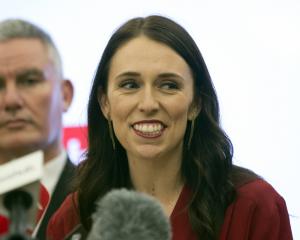The Government is about to bring in a Bill to regulate space. Well, not exactly. It is to cover Rocket Lab's launches of lightweight space satellites from Mahia Peninsula and comparable future innovations.
Rocket Lab's innovation - backed by New Zealand taxpayers but now registered in the United States where it has deals with a California company aiming to land commercial craft on the moon and with the National Aeronautics and Space Administration - is to cater for a new generation of small commercial space craft.
Charging as little as $US50,000 a launch, Rocket Lab asserts "space is now open for business''.
That requires rules. Hence Minister of Space - oops, Science and Innovation - Steven Joyce's Bill, developed in short order by his Ministry of Business, Innovation and Employment to line New Zealand up with international rules and obligations.
The need for the Bill reflects changing technology in a changing global order. What to regulate and how is changing and will change a lot more through the next 10 to 30 years.
Simon Bridges last year regulated drones. When he entered Parliament in 2008, that was not on his agenda.
Are politicians and official advisers up to that futuristic challenge?
Most are much more comfortable in the present - or, on some matters, the past, as in the Cabinet's monarch-like dispensing of honours (including medieval-relic sirs and dames) at the weekend. A national, as distinct from National, recognition of real contributions to the nation's wellbeing would be by a whole-of-Parliament committee.
Greens say the Cabinet is a relic of the past also in its transport obsession with roads, cars and trucks. Greens want goods on rail and people on public transport.
Greens have long claimed to be charting a path to the future. But is their future the one we will experience or a future conceived in the past?
If all cars are electric by 2030 and relatively cheap to maintain and run, might not there be more demand for roads, not less? Rail is nearly two centuries old. What will "public'' transport be in 2025?
The Ministry of Transport (MOT) has been grappling with these sorts of questions, looking out 10 to 30 years. It has found the future is unlikely to be a projection from the past through the present.
When the MOT looked at future demand for personal mobility, it found vehicle kilometres travelled flattened in the mid-2000s at around 40 billion km a year and only recently have picked up again (perhaps reflecting record net immigration?).
Young people are far less likely to get a driving licence or buy a car than their elders. They have other, digital, ways of linking with friends or getting entertained.
That leads to a different way of thinking about transport: as "access'' rather than physical ``mobility''.
The policy issue then becomes not projecting demand and providing for it but developing the flexibility to respond to changes in the sorts of access people may want over time.
For example, spatial planning geared to "proximity'' rather than just "mobility'' may become more pertinent. Commuting over distance to schools, work, shops and recreation might at some point start to seem "so 20th century''.
Digital technology has enabled a new sort of "taxi'' like Uber, car sharing by way of very short-term rentals from a pool of cars to get round town and renting out one's own car. Individual car ownership might fall.
Driverless cars are no longer science fiction. (A wag might say there are plenty already on New Zealand roads.) These "autonomous'' vehicles could use open data applications for precise directions. Build in road-strip induction "fuelling'' of electric vehicles. The list is rapidly lengthening.
With driverless cars, whom or what does the Government license - the car owner or hirer or the car or supplier? Who is responsible if the vehicle crashes - the owner or the manufacturer or the app designer or digital network provider?
The public-private transport boundary is likely to blur. In addition to buses and trains, there is likely to be a range of vehicles and a range of ways of accessing and using them. "Public'' could include point-to-point travel, now the preserve of "private''.
How might that future public transport be funded. Subsidising fares for well-paid public servants in Wellington out of taxes paid by low-income earners might not go down well in the 2020s. And how will electric vehicle travel be taxed to build and maintain roads?
And much, much more. The MOT's questioning is a way of thinking about governments' future role in a rapidly changing society (and has attracted attention in Britain). That different thinking is not yet widely evident across the public service - or among politicians - though the Treasury has widened its brief.
But as Mr Joyce's space Bill and Mr Bridges' drone rules show, the future has a habit of turning into the present, sometimes a very different present - in politics and policy, as in life.
Colin James is a social and political commentator.












